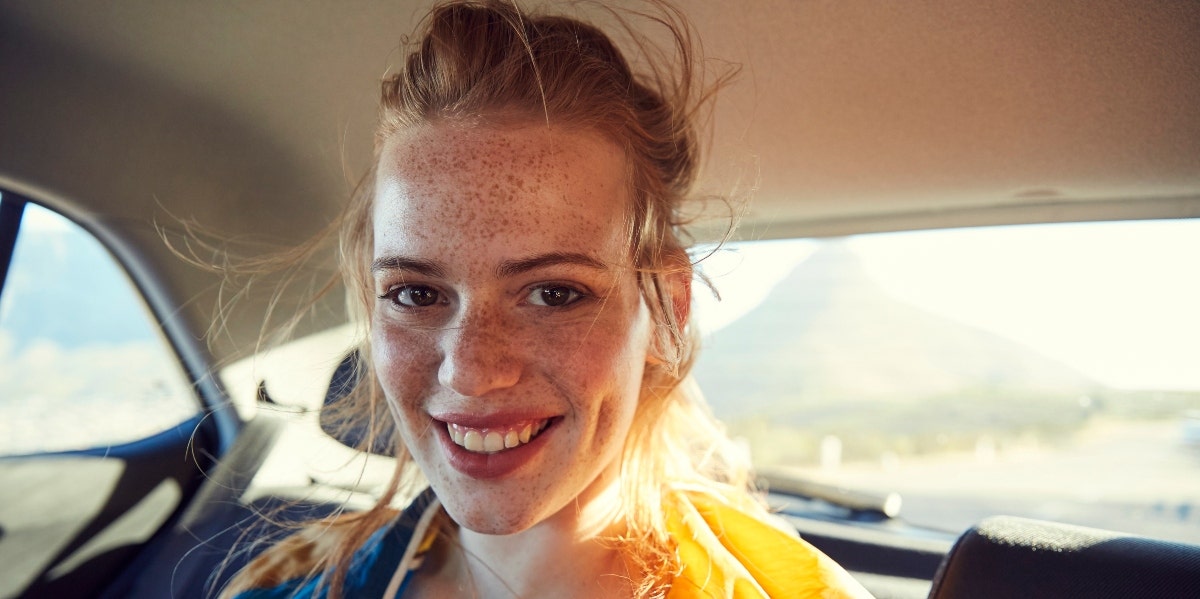The Most Important Self-Care Practice For Highly-Sensitive People
Game. Changer.
 getty
getty Many highly sensitive people (HSP) walk around in a perpetual state of exhaustion. You have a nervous system that is wired differently, and a brain that seems to miss a filter and living in a society that feeds you with information 24/7.
By the end of the day, you are looking for that hole in the ground you wished you could crawl into and never come out again.
I’ve been on this self-care journey for a while now. Meditation, yoga, spa days, walking in nature, relaxing music, and alone time are all great self-care practices that I’ve been experimenting with and implementing since my last burnout.
What is the best way to practice self-care as a highly sensitive person?
If you ask me, what the number 1 thing is every HSP needs to start with when in a state of ‘where is my hole in the ground’, I will always say: "sleep more!"
I believe that this is advice that every person should take. But if you are highly sensitive, you need even more sleep than others.
When your nervous system is a state of constant alert, your brain will feel fried by the end of the day. Sometimes, it occurs even at the beginning of the day.
It is no surprise that being highly sensitive increases your chances of experiencing burnout at least once during your lifetime. And sleep helps decompress and revitalize your nervous system.
This is not a luxury item on a ‘one day I will’ list. This is a necessity.
Seeking a solution for my exhaustion outside of myself, as we all tend to do when we first start on our healing journey, I went to see an acupuncturist a few years ago.
After patiently listening to my story (the '2 toddlers keeping me up all night' story), she just looked at me and said: "Well, I have the solution for you. For 2 whole weeks, I want you to be in bed by 8 p.m. and you are not allowed to get out of bed until you feel rested. If you then feel that you still need my help, you come back."
Within one week I was up and running again. I couldn’t believe that it could be that simple! I enjoyed sleeping so much that I did do the 2 weeks. And from there on, I never ever forgot to prioritize sleep in my life.
When creating self-care practices, I now always start with sleep.
You can meditate all you want, but if you are sleep deprived, you are probably falling asleep by your third mantra.
What really amazes me is that when I give this advice, it creates a lot of resistance.
Being an adult seems to imply that you stay up late (there is also a fear of missing out hidden somewhere in there) and that you don't need as much sleep as a child.
Although this is true, you don't need as much sleep as your children, you, as a highly sensitive person, do need more sleep than the non-highly sensitive person.
I am not asking you to be in bed by 8 p.m every day — an hour earlier than you normally would go to bed is already 7 more hours of sleep booked in one week.
Commit for 2 weeks on going to bed 1 hour earlier than you normally do. For you to do so start decompressing at least 2 hours before you really want to go to sleep. This means no type of stimulation that impairs the production of melatonin, which plays a key role in regulating your sleep cycle.
I am talking about smartphones, iPads, television, computers, and more. Our bodies have not evolved to handle this much artificial light in the evening. You can read before bed but use a small reading lamp.
When you feel that you've caught up on sleep, do everything you can to maintain this foundational self-care habit.
Set up boundaries for yourself. Create your life around getting enough sleep. Don’t go without less than 8 hours for more than 2 nights in a row. Believe me, your nervous system will thank you!
Getting enough sleep helps you create a sturdy foundation for not only creating other habits that fit your sensitive needs but also for creating a life that is energized and purposeful.
Dr. Karin Monster-Peters is an Energy Healer, Life Purpose Coach, Psychologist, Parenting Coach, and founder of The Vibrant Sensitive and Highly Sensitive Parents. For in-depth information and actionable tools, download her free 6 Steps Guide for a Vibrant Sensitive Life.

